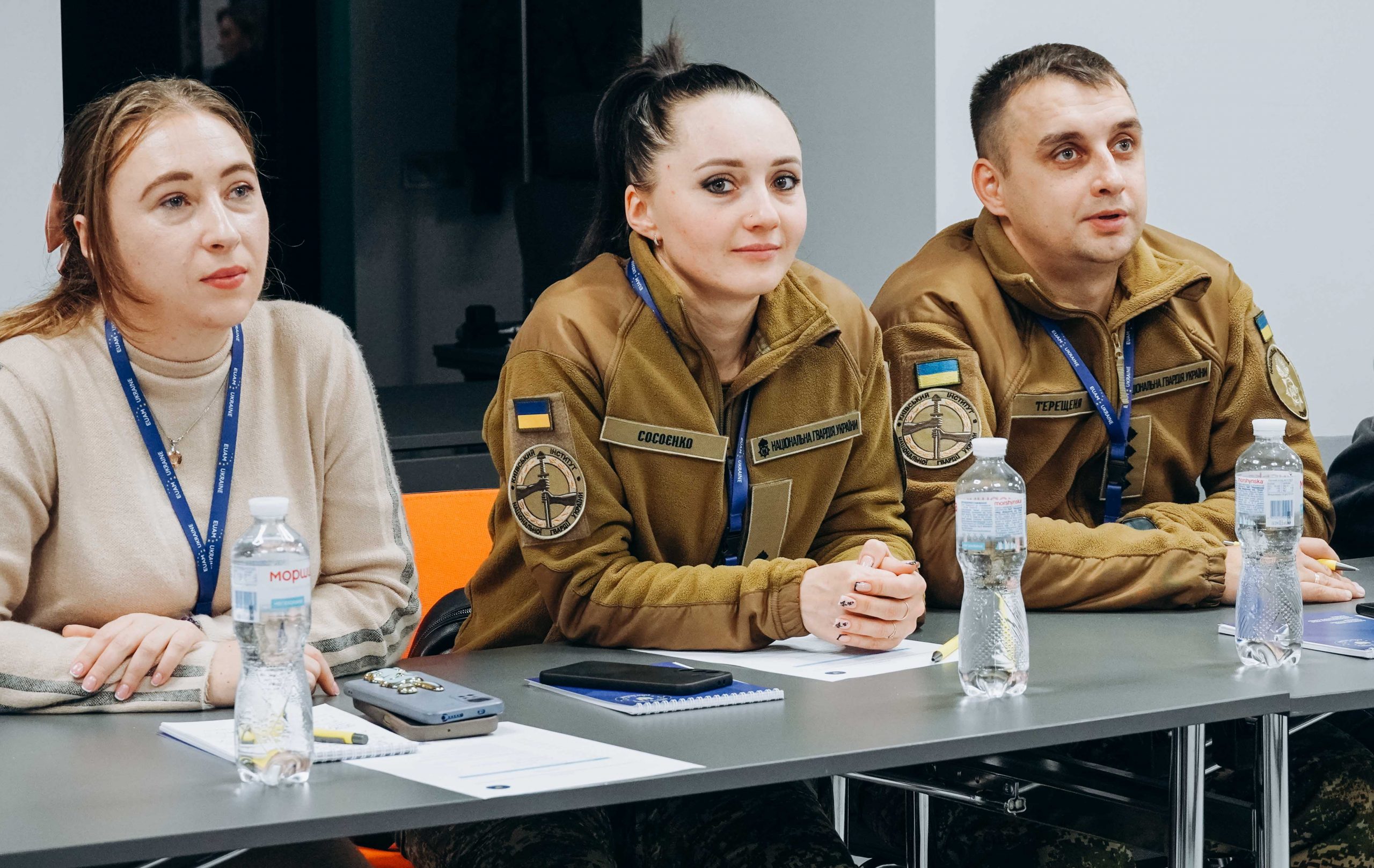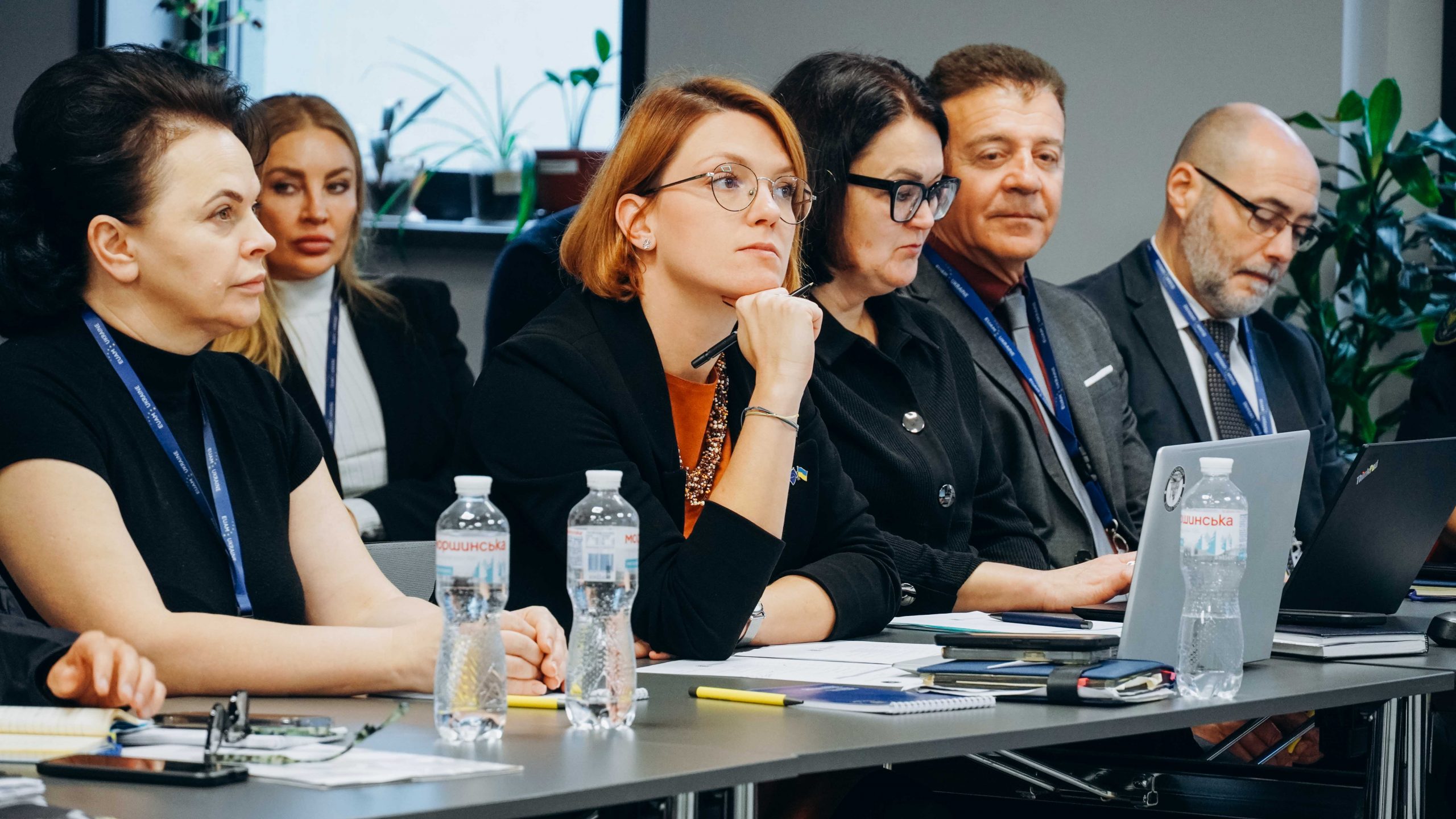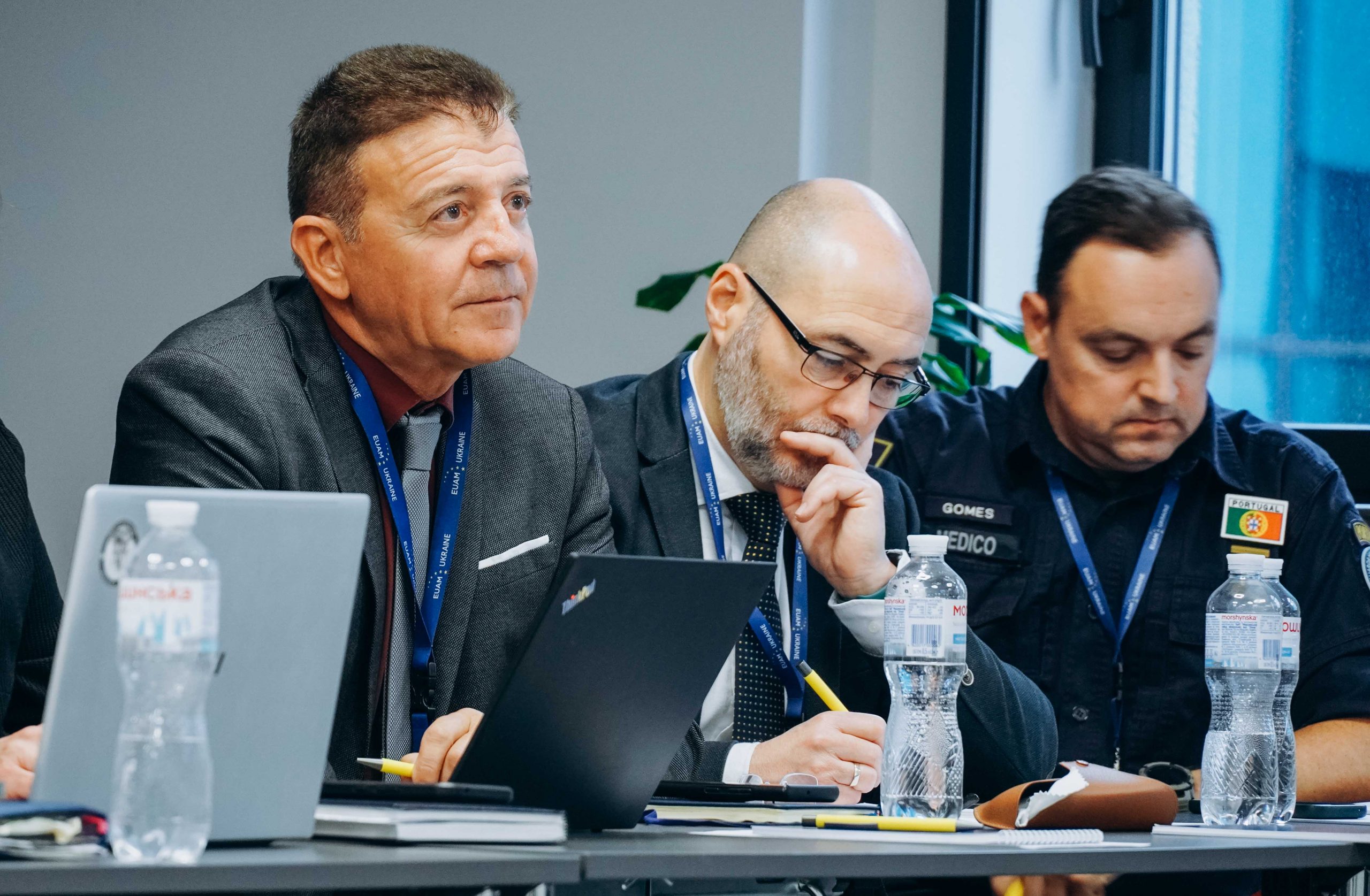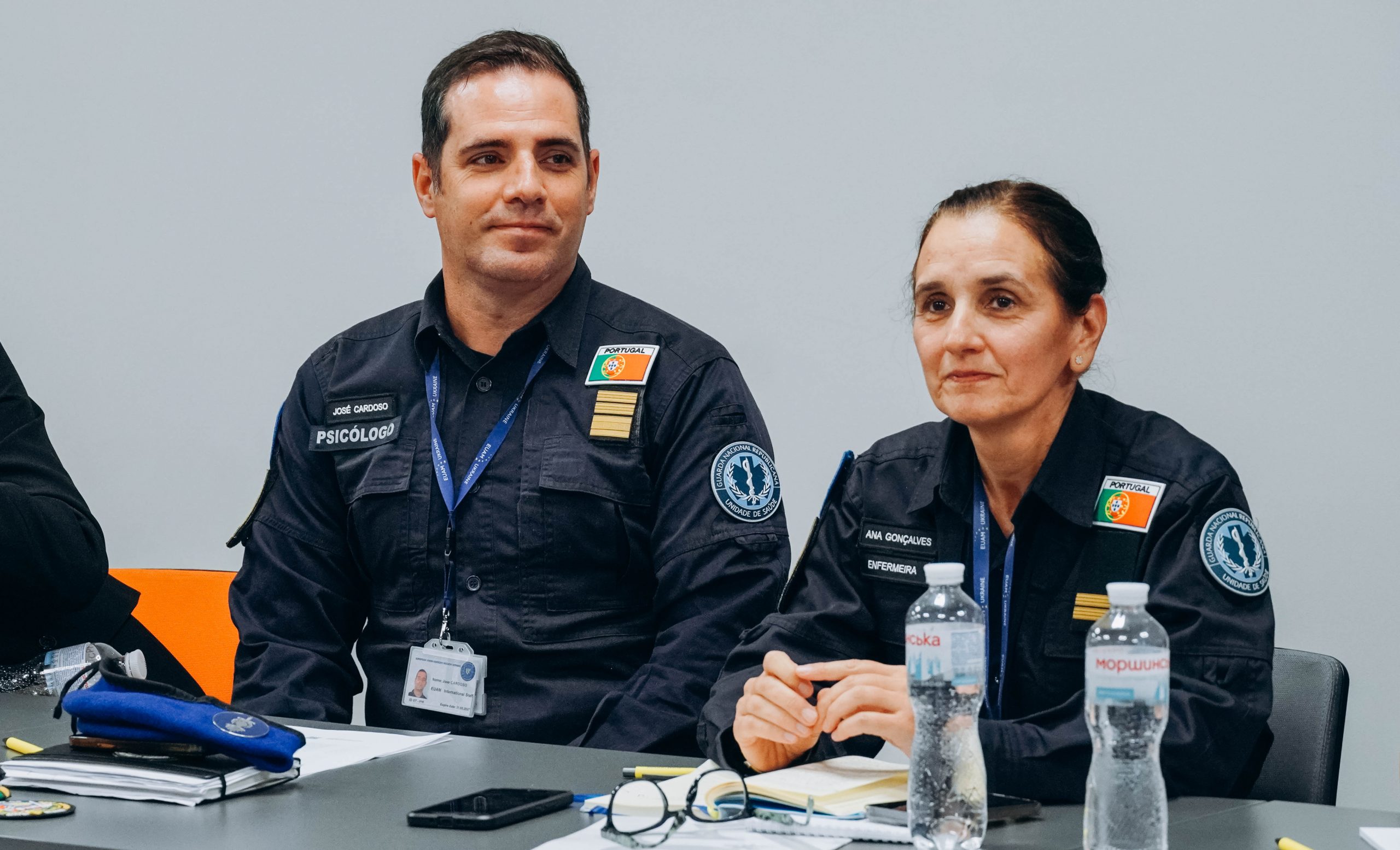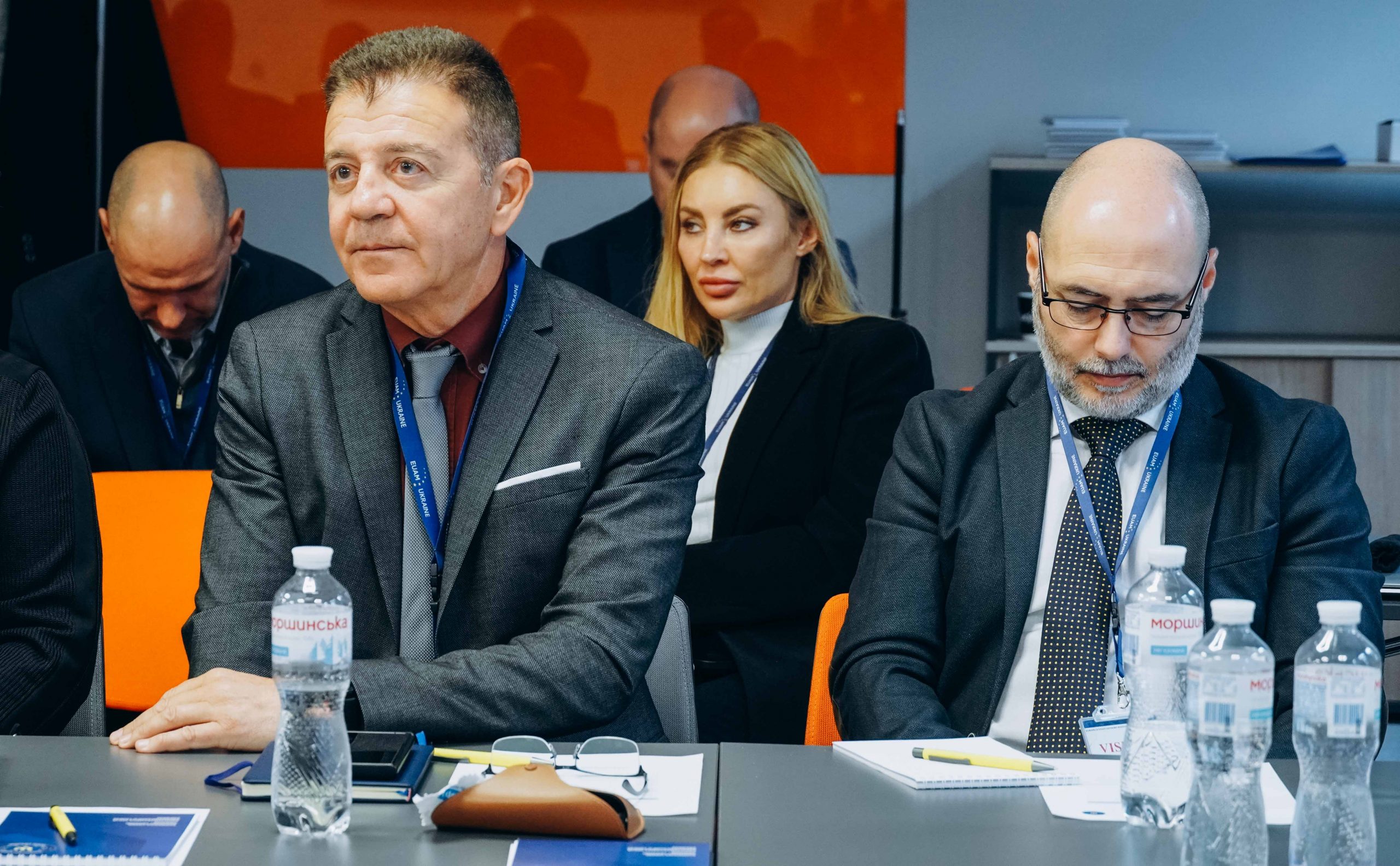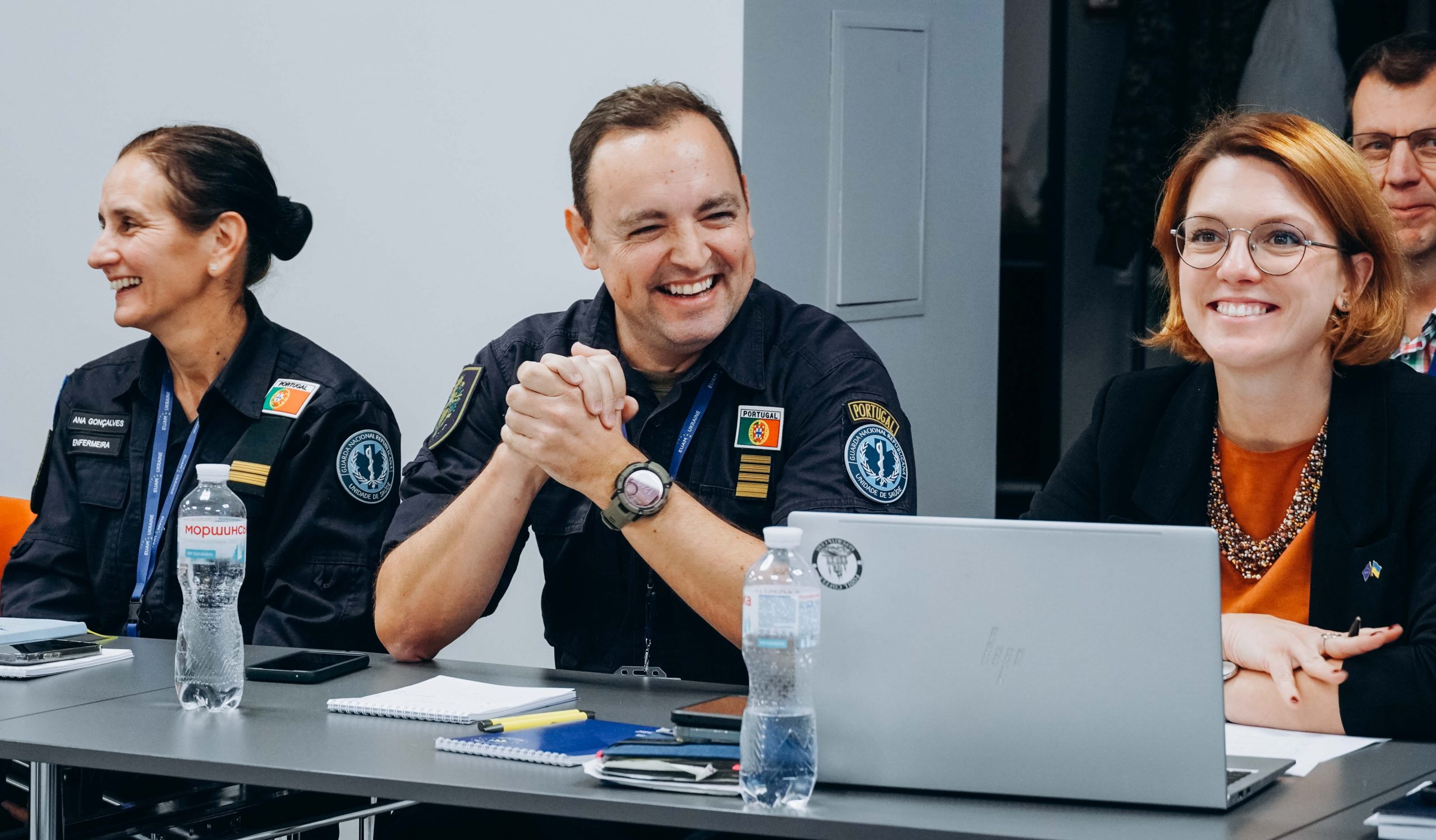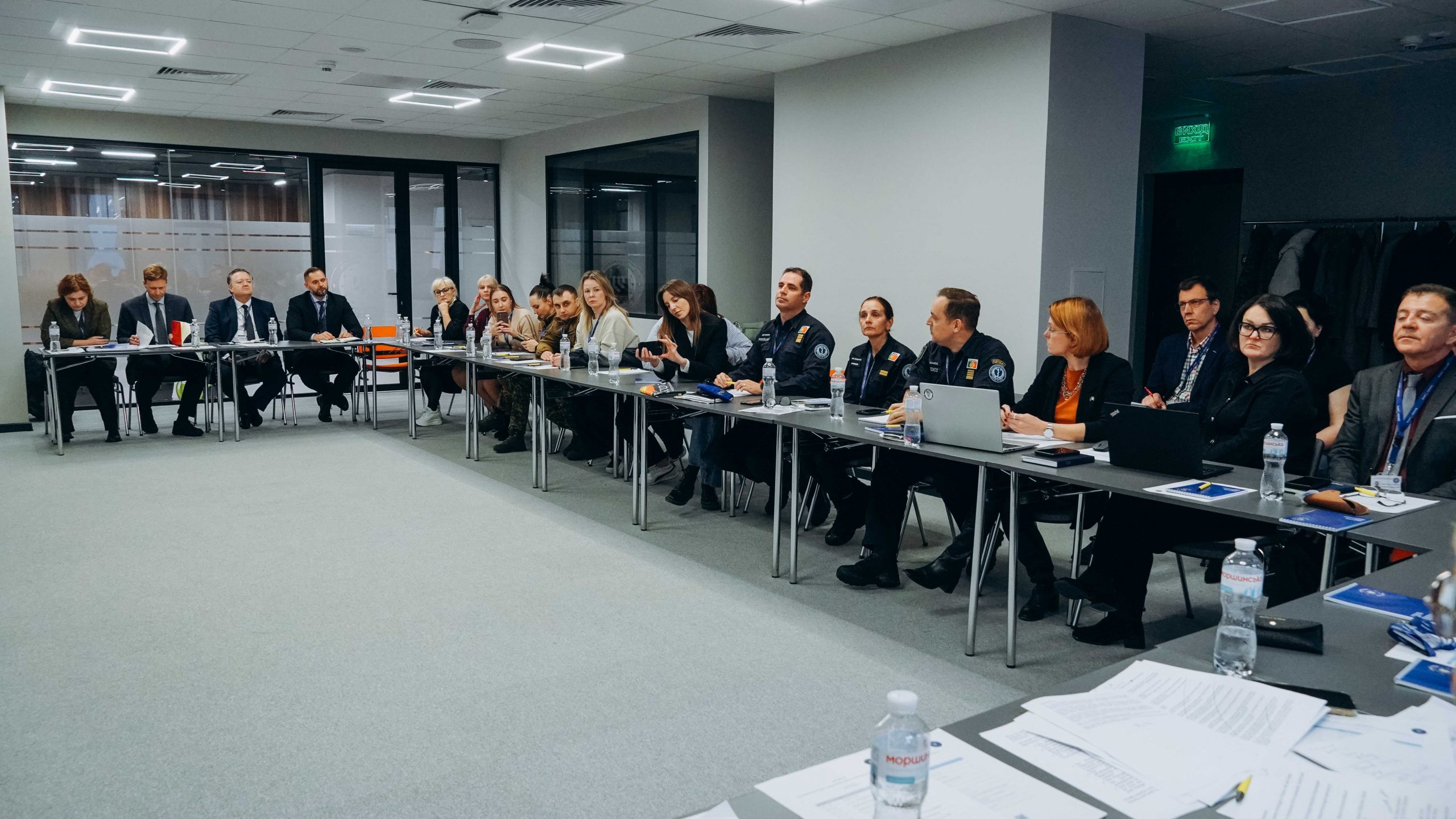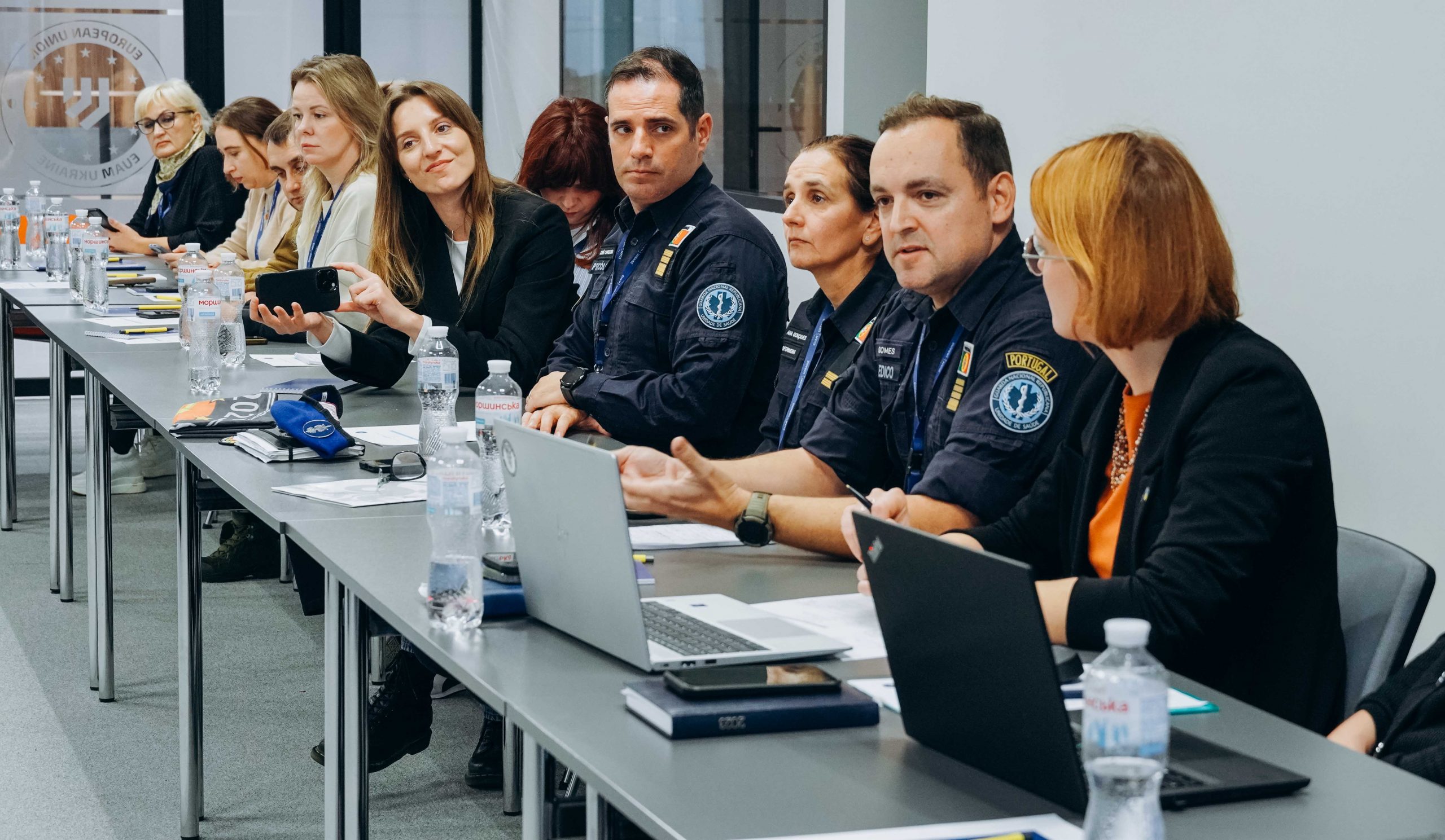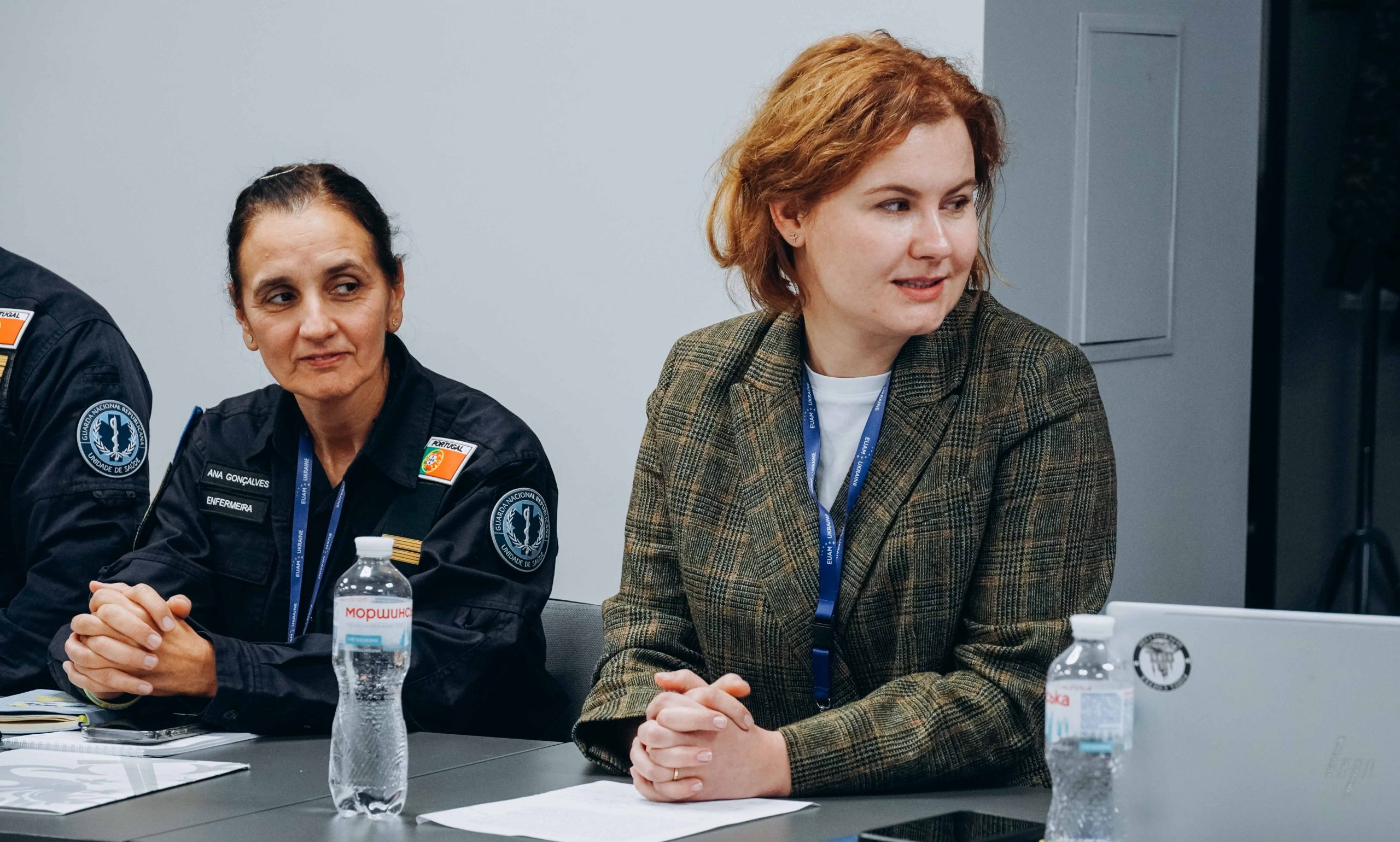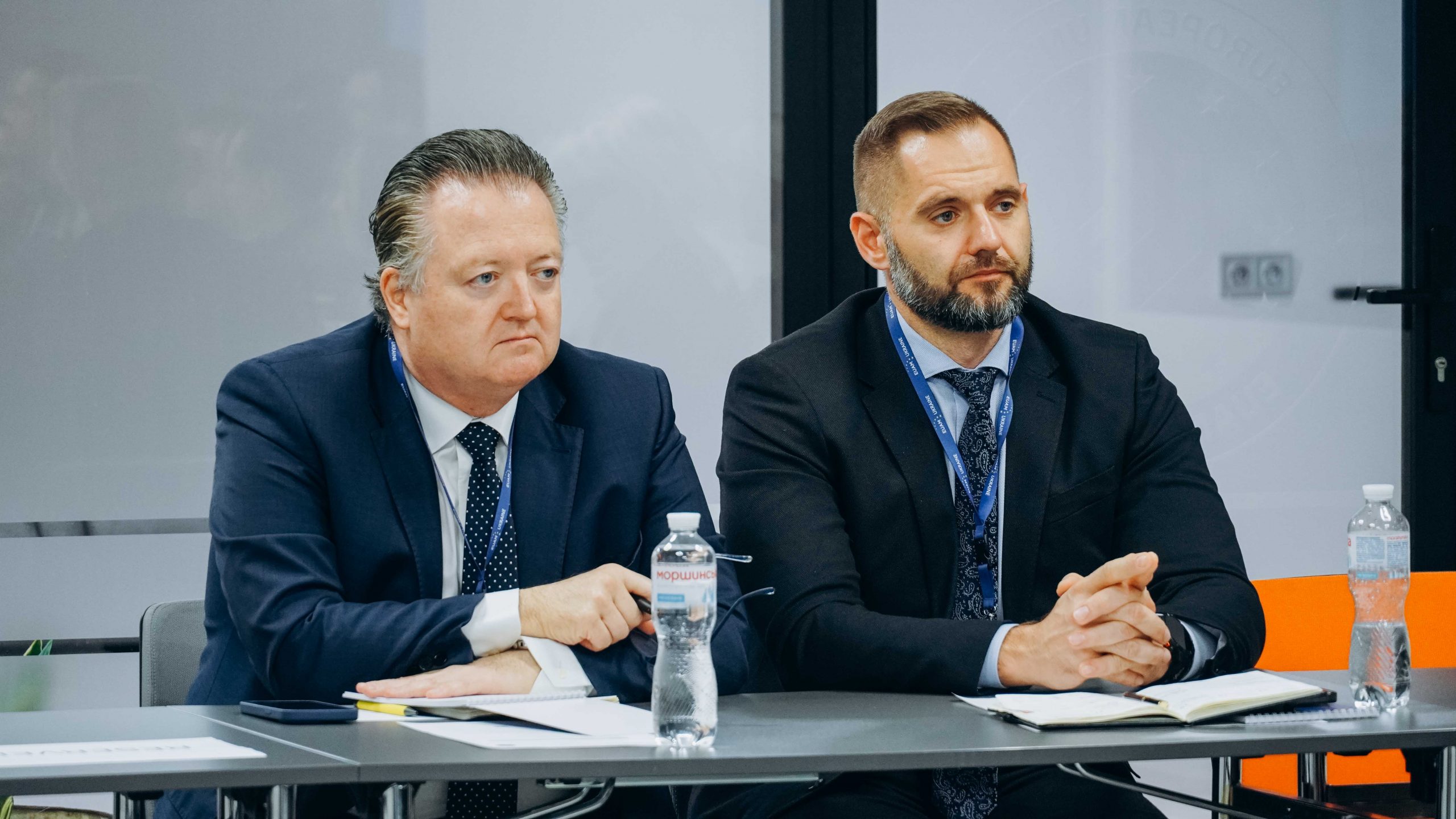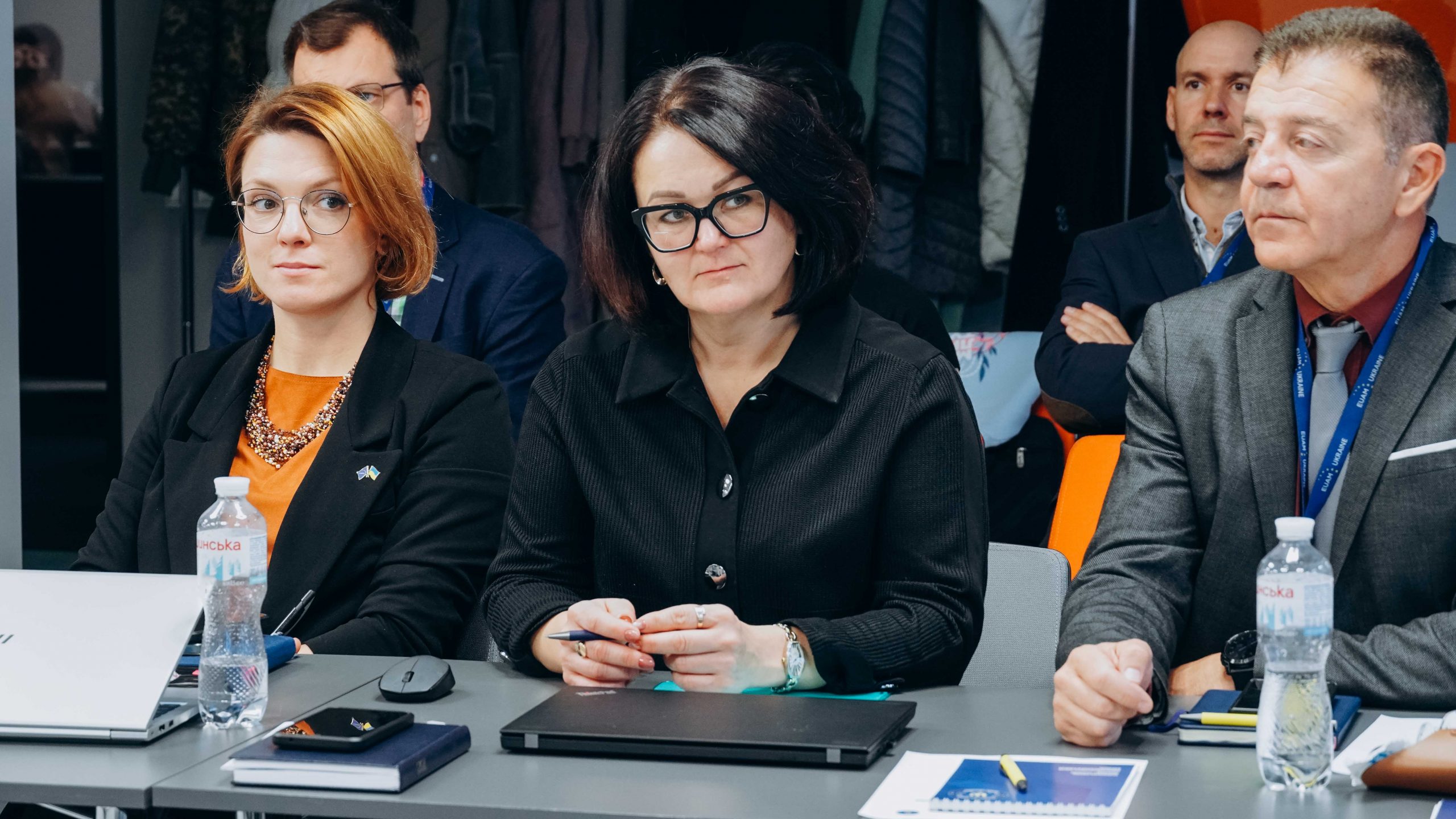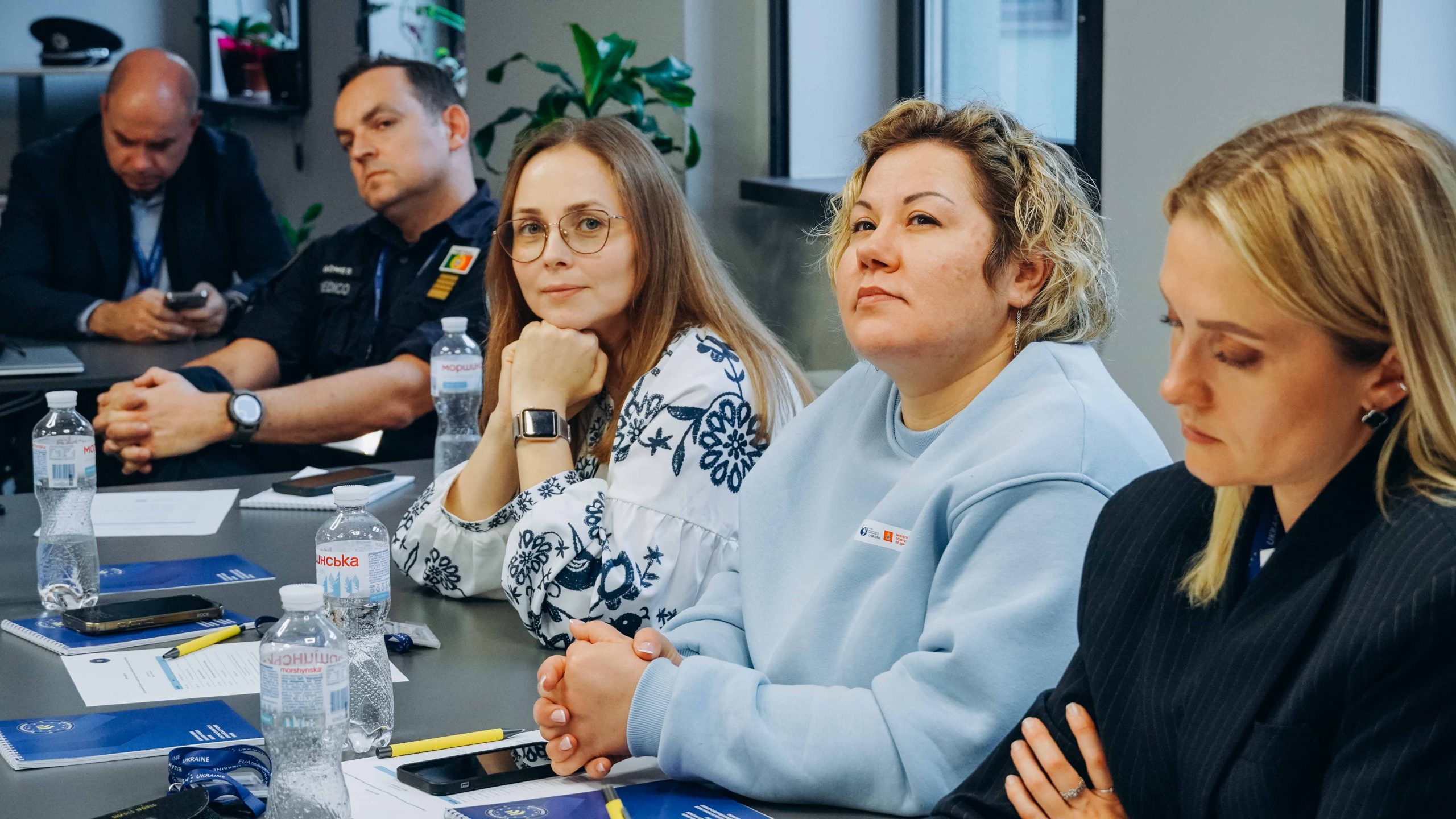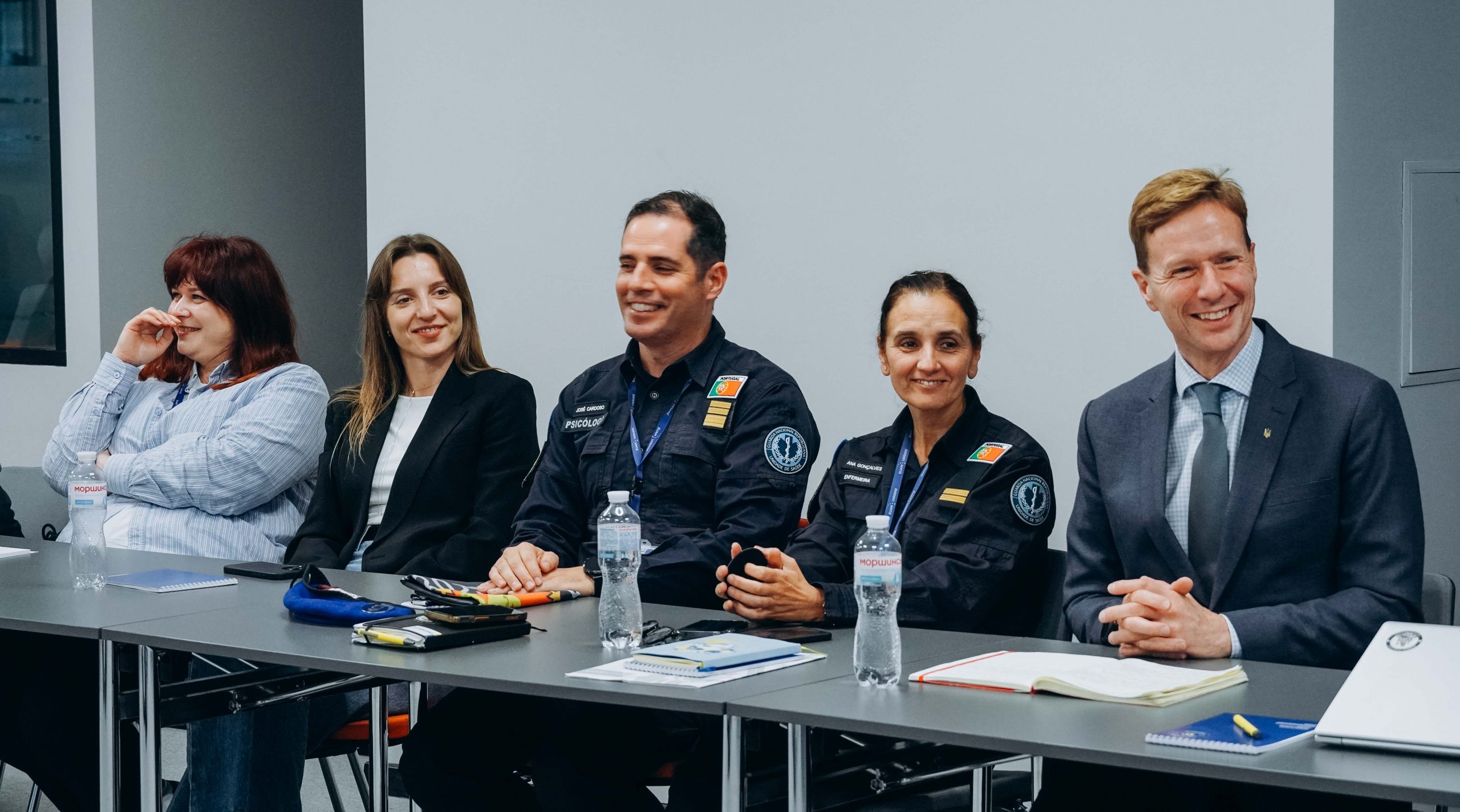Ukraine’s Mental Health Frontline: EUAM and EUROGENDFOR Complete the EU-Certified Psychological First Aid Training
October 28, 2025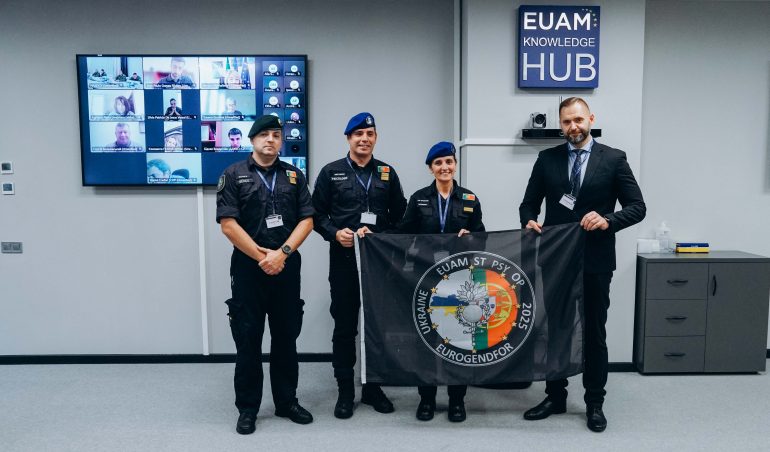
“Every Ukrainian family is living through the war, no matter where they reside – in Kharkiv, Lviv, Odesa, or in Berlin, Brussels, or Lisbon,” says Valeria Palii, Head of the National Psychological Association of Ukraine (NPA). She said this at a roundtable, organised by EUAM Ukraine on 21 October 2025, which brought together partners and experts to mark the completion of the EU-certified Training of Trainers (ToT) Courses on Psychological First Aid (PFA).
The event concluded a six-month capacity-building programme that equipped 48 psychologists and academic staff from 12 higher educational institutions of the Ministry of Internal Affairs (MoIA) with the tools and credentials to train others, embedding mental health resilience within Ukraine’s civilian security system.
From Training Rooms to Classrooms
What began at the National Academy of Internal Affairs is now reaching universities and academies of Ministry of Internal Affairs across the country. The newly certified trainers are already teaching students and colleagues, spreading practical knowledge and strengthening a culture of care and empathy.
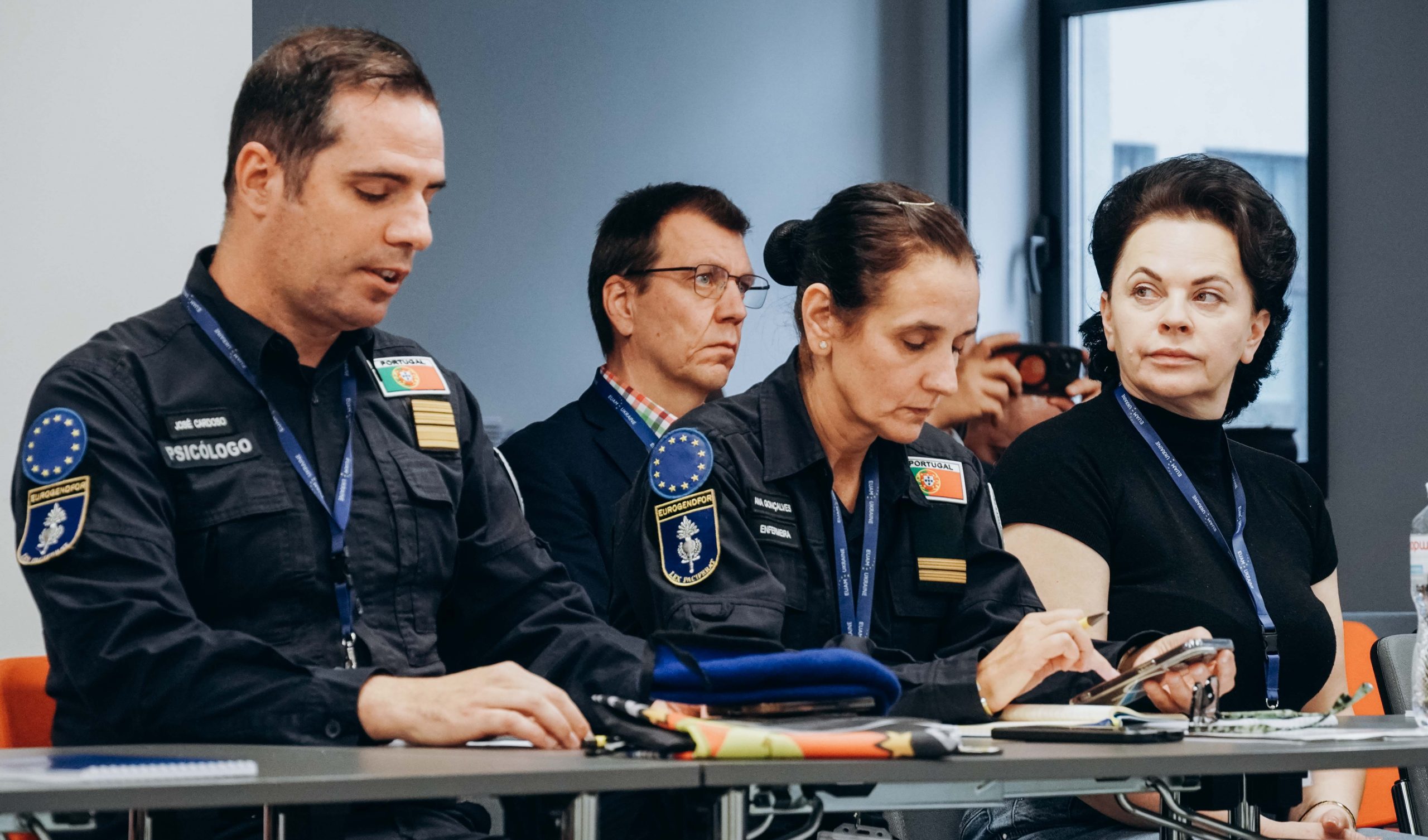
“From today onward, Psychological First Aid will be part of every cadet’s training and accessible to all citizens, empowering communities to respond with empathy and resilience in times of crisis,” said Jose Cardoso, Team Leader of the Portuguese Specialised Team.
The courses were held in the spring of 2025 and were delivered by an EUAM Specialised Team from the Portuguese National Republican Guard under the flag of the European Gendarmerie Force (EUROGENDFOR). Participants of the training received accreditation from the European Federation of Psychologists’ Associations (EFPA) under the EuroPsy framework – aligning Ukraine’s psychological education with European professional standards.
“This programme symbolises the strength of our partnership with law enforcement agencies and our shared commitment to building resilience within Ukraine’s civilian security sector,” said EUAM Head of Mission Rolf Holmboe. “With the knowledge and EU certification they now hold, these professionals are not merely graduates – they are trainers and agents of change.”
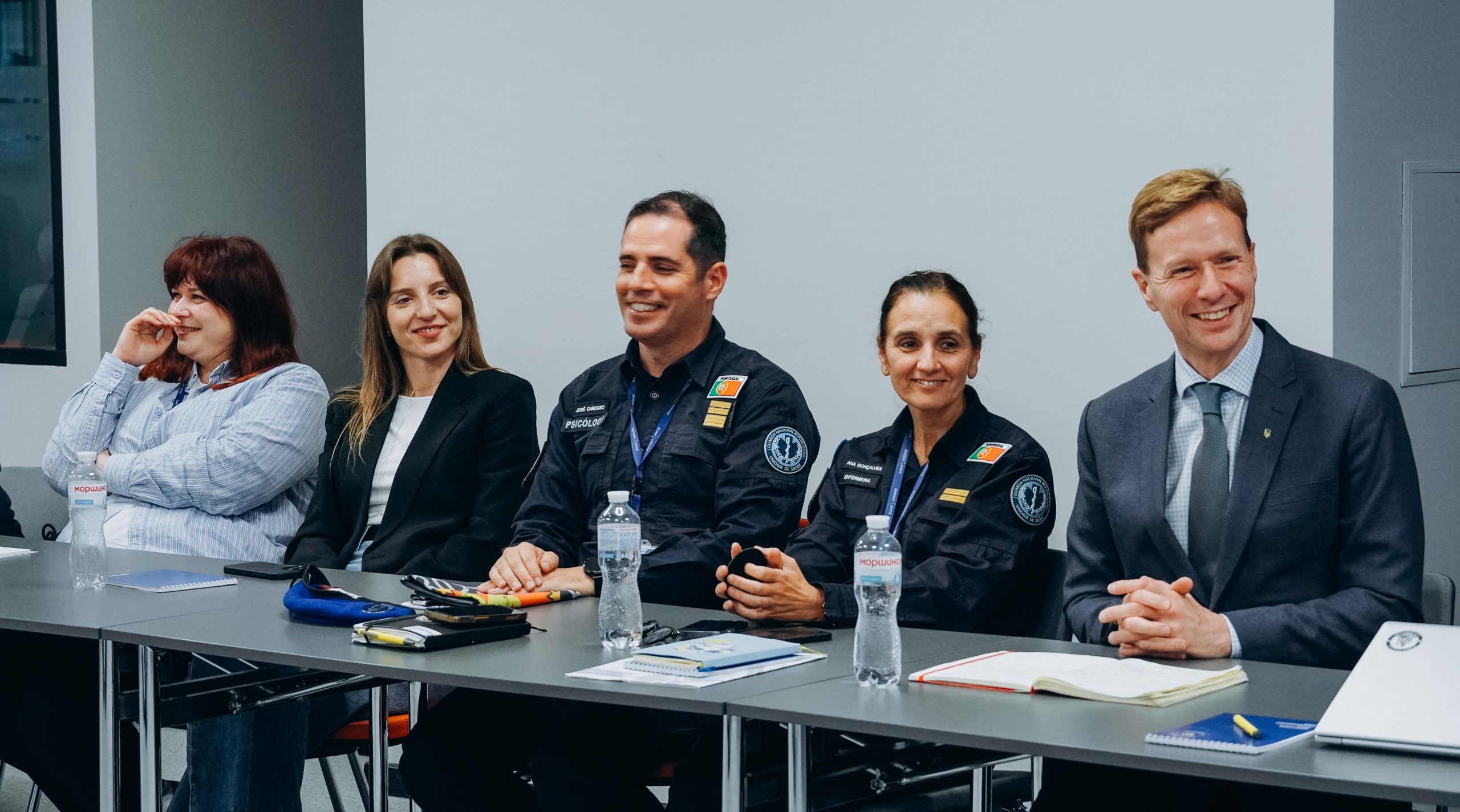
Developed in close cooperation with MoIA, the training aims at addressing the growing psychological needs of Ukraine’s law enforcement community amid the ongoing Russian war of aggression.
“This training was enriched by an approach that goes far beyond Psychological First Aid,” added José Cardoso. “We introduced psychological interventions in the context of war – including stress management in hostile environments, crisis communication, and an overview of how psychological services are organised in Europe. We brought the best of our knowledge, and we also take your experience with us.”
Extending Beyond the Security Sector
The initiative’s impact now extends to civilian specialists. NPA has joined the effort, ensuring that Psychological First Aid training reaches a wider professional community.
“We have already launched a tender to organise training in four Ukrainian cities – Rivne, Lviv, Ivano-Frankivsk, and Vinnytsia,” said Valeria Palii. “Our eight trainers will be able to train up to 144 professionals, including school psychologists, social service workers, and humanitarian organisation staff. This will be an excellent outcome of our cooperation.”
Partners United by Purpose
The roundtable brought together EU and Ukrainian partners, including the Ambassador of Portugal, the Commander of EUROGENDFOR, as well as the Ambassador of Ukraine to Portugal, and the President of the European Federation of Psychologists Association (EFPA), who jointly recognised the tangible and very positive results of this cooperation. EUAM expressed its deep appreciation to the Ministry of Internal Affairs, the National Psychological Association, EFPA, EUROGENDFOR, and the Portuguese National Guard for their expertise and dedication.
“What we see now is this effort shaping how Ukraine prepares, supports, and protects its law enforcement community – not just today, but for years to come,” said Rolf Holmboe.
Strength Through Solidarity
The conclusion of the EU-certified Training of Trainers Courses marks the beginning of long-term institutional change. Appropriate psychological support is now becoming a standard part of professional education within Ukraine’s civilian security institutions, ensuring that those who protect others are themselves supported. As Valeria Palii noted: “Terrible news surrounds us, and tragic events as well. That is why the dissemination of evidence-based practices is so important and relevant for us.”


